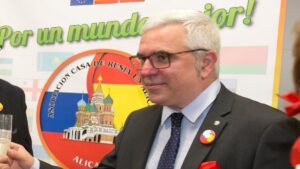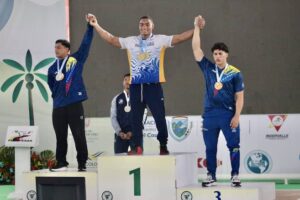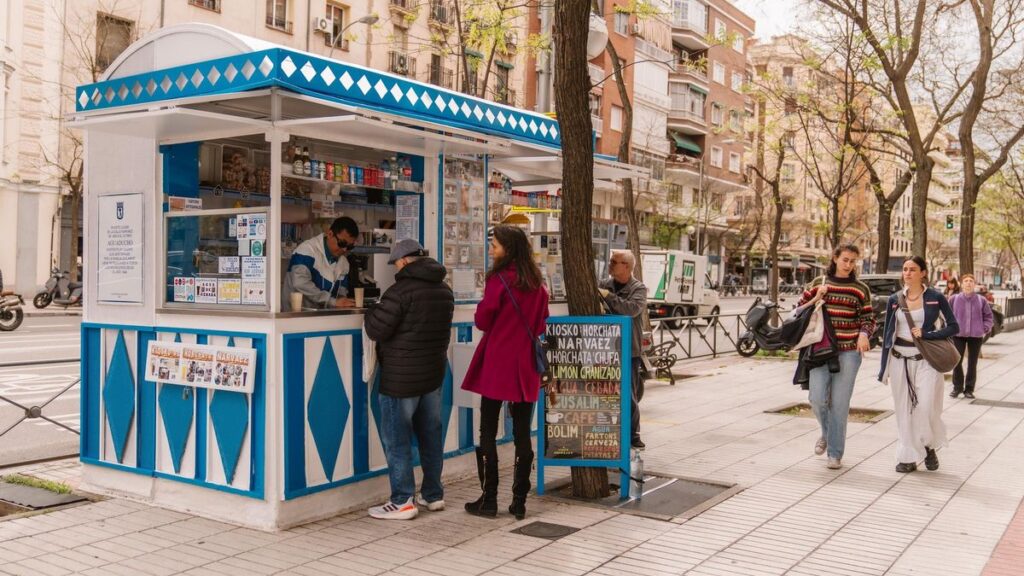
When in 1910, Francisco Guilabert and Francisca Segura left crevillante, in Alicante, they did so in search of a better future. After more than a month of travel up to a tartana, they arrived in the capital and requested the City Council of Madrid The necessary permission to lift an aquaducho, one of the most fruitful beverage businesses at that time. “Formerly many traditional drinks were made. They made their own, which we still sell today,” explains José Manuel García, his great -grandson and current business owner. It is the fourth generation of a family that has witnessed gentrification and restlessness over the years in the city center. Although formerly in its letter, waters of flavors were sold, such as cinnamon, orange blossom, fennel, rosemary, scorzonera or violet, currently the trade manufactures only three drinks: horchata, lemonade and barley water.
“Today things have evolved and everything is industrialized, such as Coca Cola and all that. Before everything was handmade.”remember. Of their great -grandparents, which were installed on Cedaceros street, the business passed to María and Manuel, grandparents and teachers of José Manuel, with whom much of his childhood passed. This time, the establishment was in front of the current Congress of Deputies. Until 1936, with the outbreak of the Civil War, which were forced to return to Alicante. It was five years later, in 1941, when the marriage resumed the sale of its specialties in the Plaza del Carmen. His stay there was brief because in 1942, the family kiosk was definitively moved to number 8 of Narváez Street, where Garcia has been working for 20 years. “It was my aunt, who took the witness to my grandparents, who offered me to work in the family business. She was already older and my brother wanted to leave it,” he says.
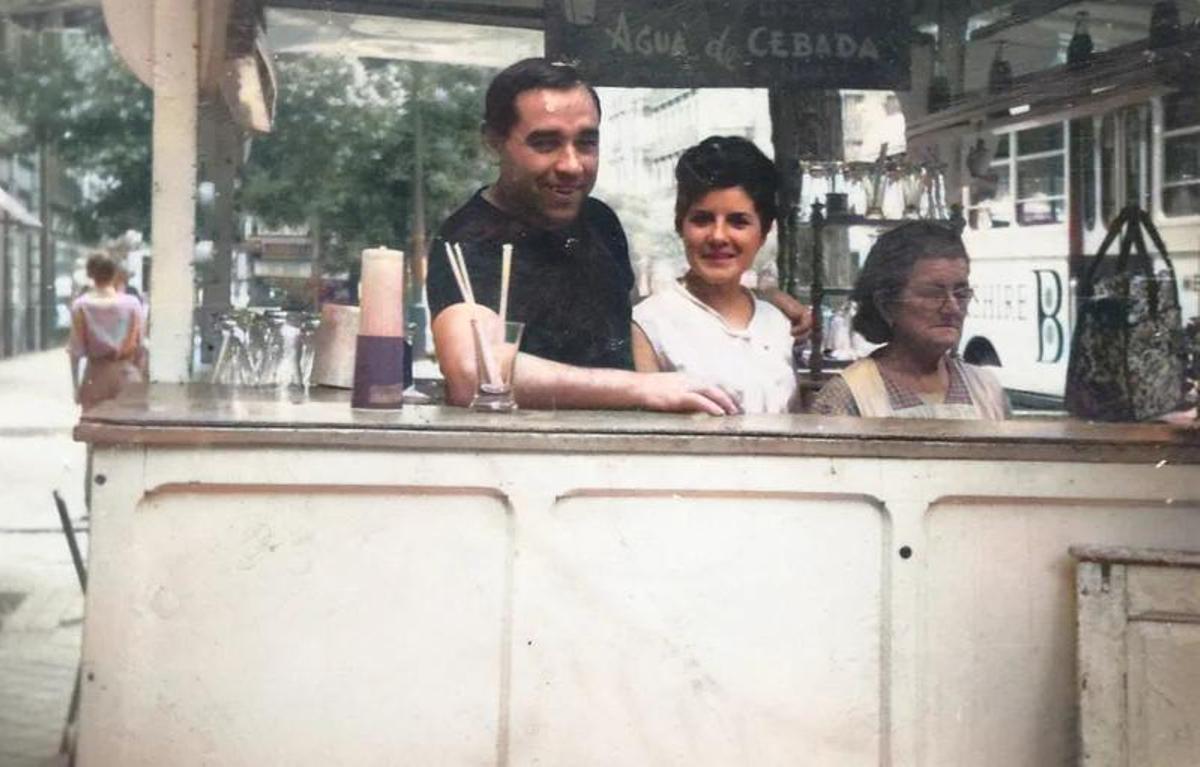
The Guilabert Segura family arrived in Madrid in 1910, after traveling a month in a tartana from Crevillente, Alicante. / Provided
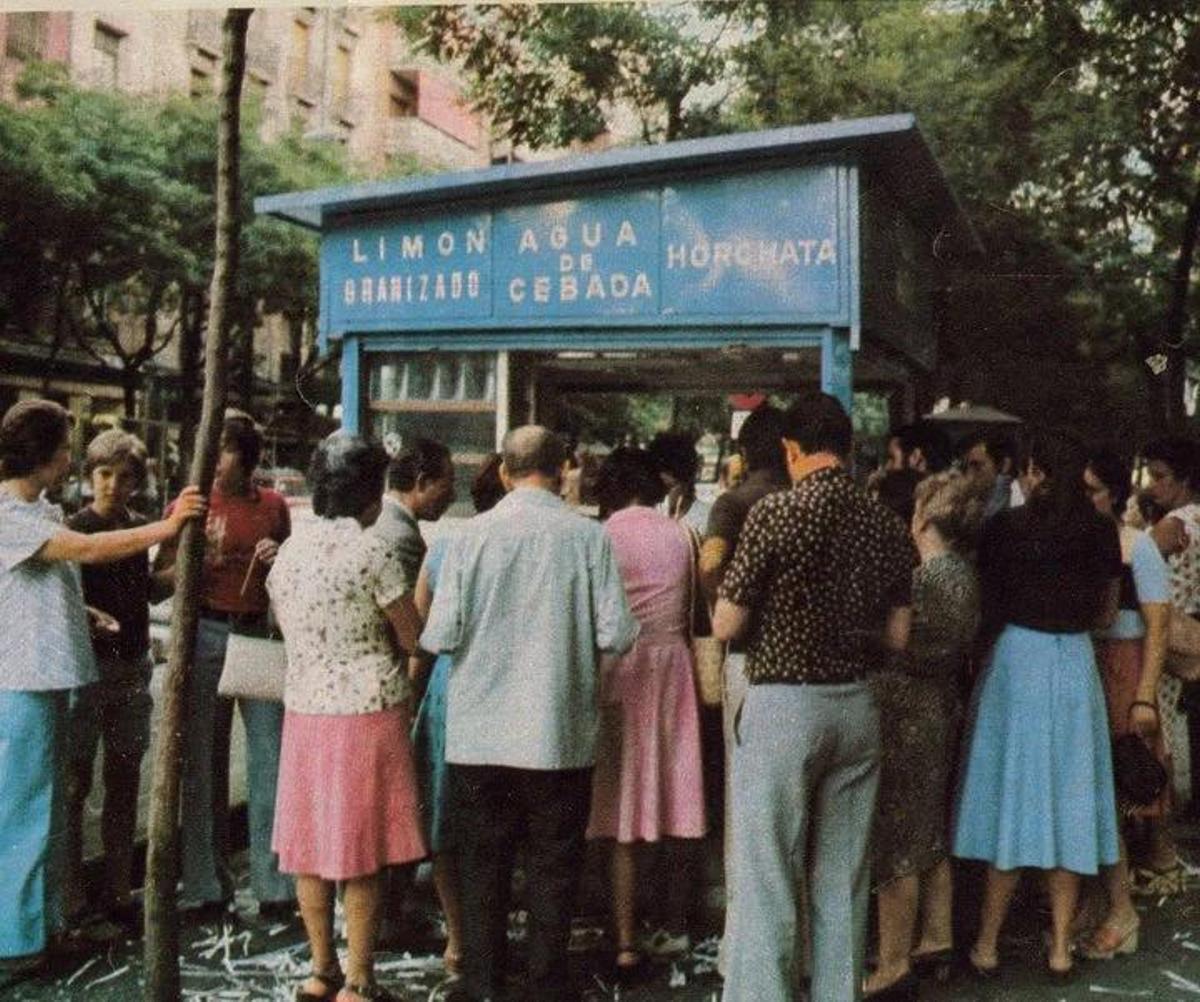
After the civil war, barley water became one of the most popular drinks in the capital. / Provided
Today, together with Milton, their employee, attend customers uninterrupted from April to October, as long as time allows it: “Since I was little, when the school ended, I came here with my mother and spent almost all day, scrubbing and sweeping”. A “beautiful” and “sacrificed” work at the same time, because the Madrid spends all summer in the shadow of his business. Its clientele, which alternates residents of a lifetime with tourists and curious who approach “to try”, allows the business to remain afloat. It is the only one. Although a few decades ago, the Paseo de la Castellana was plagued by these aguaduchos, with more than 300, currently only resists that of the Guilabert Segura family. “It's many years, many stories with the whole neighborhood,” he says. Every year, before opening the doors of the kiosk, both he and his family finalize the details and put everything necessary before the new season: “During the winter, our rest time, we paint the walls and fix everything.”
Its origin, a debate
Although for several years it was the City Council who supplied merchants with wooden businesses, for decades the family has an own, blue and white, colors of crevillent, its hometown. “They came to give us a plastic, from Pepsi, which was mounted on pieces and gave a tremendous war,” he recalls. When the season ends, it is a crane in charge of transporting the trend to a ship, where the rest of the year remains: “We pay a rent”. In 2021, José Manuel published with an editorial the book Horchata Kiosk Family Guilabert: More than 100 years of Crevillentinos Horcleros History, anecdotes and curiosities, where he recounts in the first person the experiences at number 8 of Narváez Street.
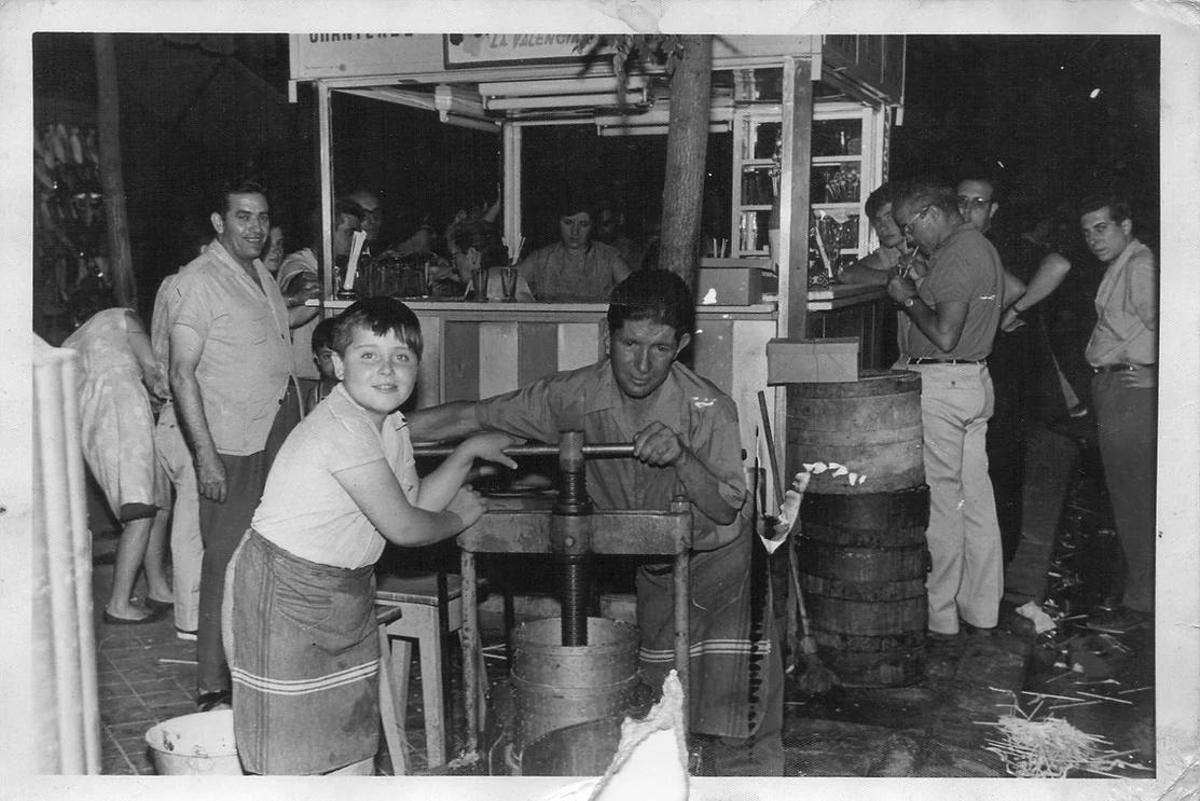
Miguel and Manolo, cousin and uncle of José Manuel respectively, making horchata in the kiosk of Narváez Street. / Provided
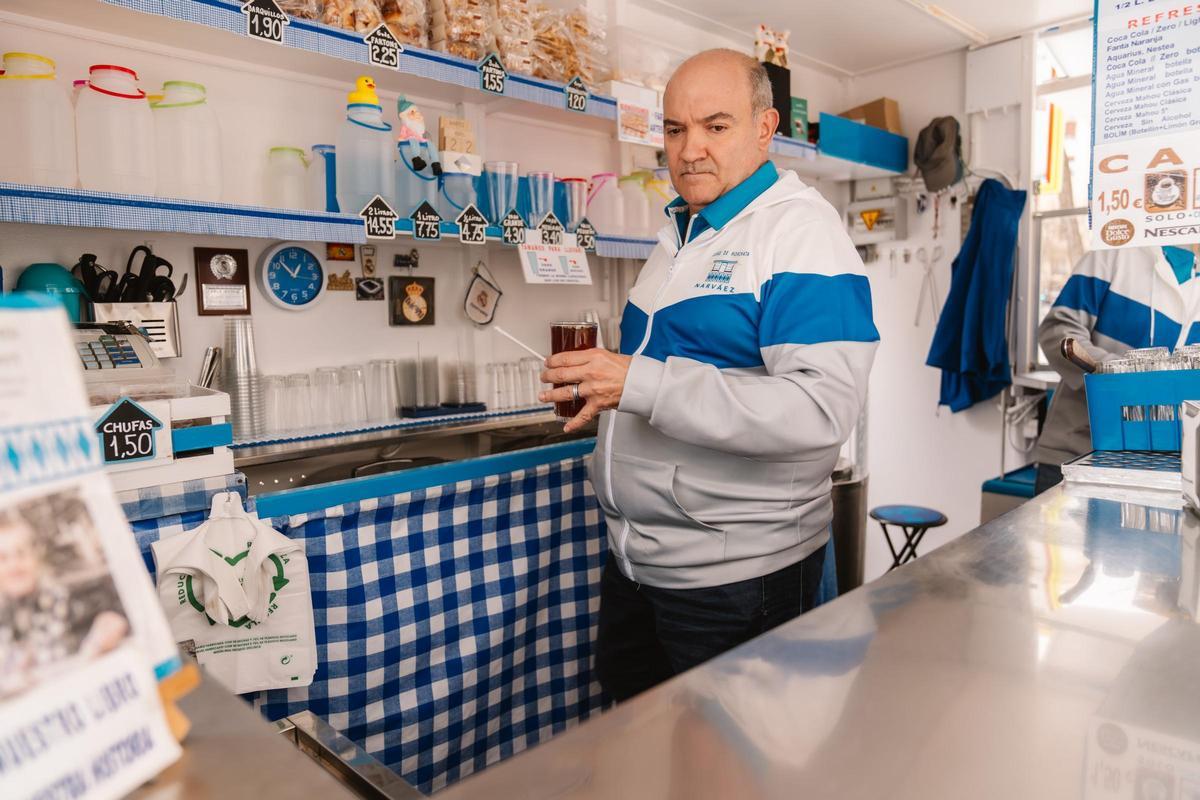
José Manuel took the witness of his aunt 20 years ago and, since then, he is located on the other side of Narváez Street. / Alba Vigaray
The recipe is simple. Barley water, like other elaborations, was cheap and easy to prepare. “As there was a surplus of cereals, they had to go out. It was very economical and became popular at the fairs, in the verbenas of La Paloma, San Lorenzo and San Juan… in our case my aunt and my brother elaborate during the months prior to the opening. They thrash the barley and then cook it in water. It is allowed to macerate for several days and brown cane sugar is added. Then, when preparing it, it cools and served with a little lemon”, Says. Of the three products, barley water is the least sold. However, the family does not plan to stop producing it:“ We want to continue with tradition. ”The lemonade and the horchata, its best -selling products. The latter, in addition, has been wrapped in a controversy about its origin, which some believe it from Madrid and others Valencian:“ I do not want to presume, but to Caesar what it is of the Caesar. Although it is sold in Valencia, it is from here. ” In 1952, the capital came to sell four million liters of horchata.
A company without heir
José Manuel remembers everyone. Each member of his family who went through the color post, left his mark. His brother Miguel, his aunt Lola or his uncles Ramón and Manolo are some examples. “It is a shame that most old businesses have disappeared. Every year it costs a little more to stay, although thank God we have a faithful clientele”appreciate. José Manuel's family, which has remained in time for more than a century, maintains humility since its inception. “That differentiates us from any supermarket,” he confesses. Infinity of celebrities have passed through their establishment. Aitana Sánchez-Gijón, Isabel Díaz Ayuso, José Luis Martínez Almeida or Javier Bardem, among others.
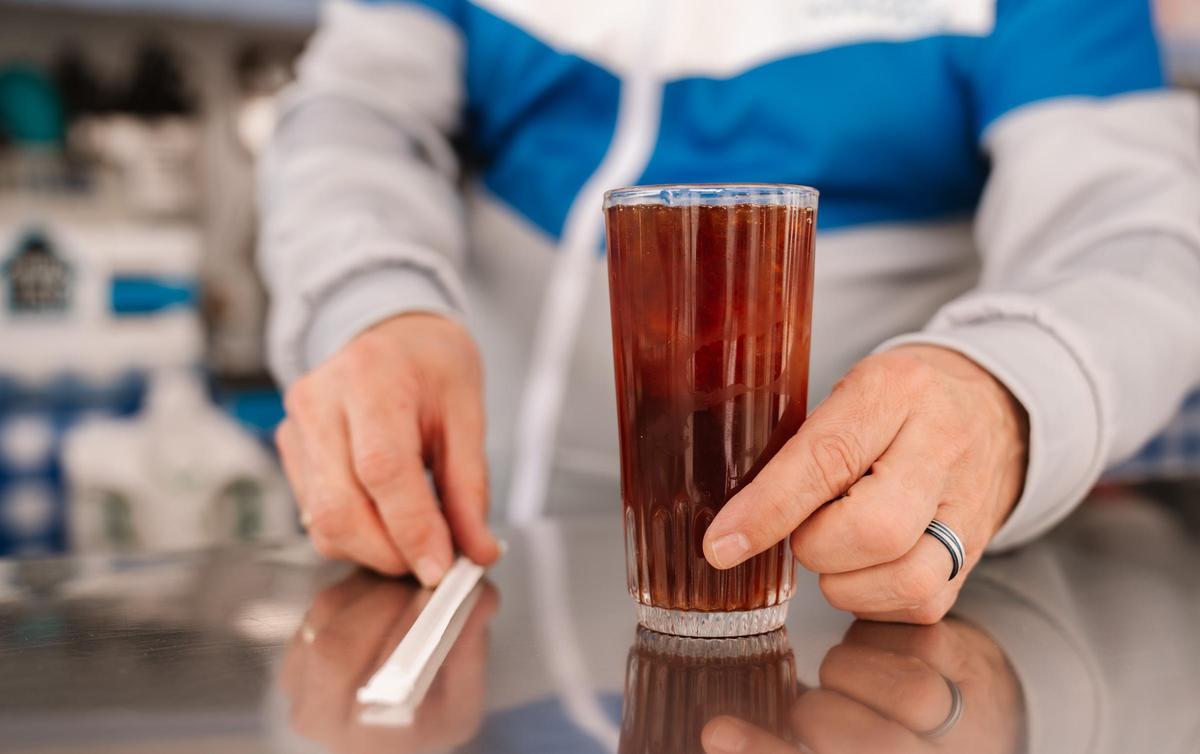
José Manuel prepares a glass of barley water, made with toasted barley, water, brown sugar and lemon. / Alba Vigaray
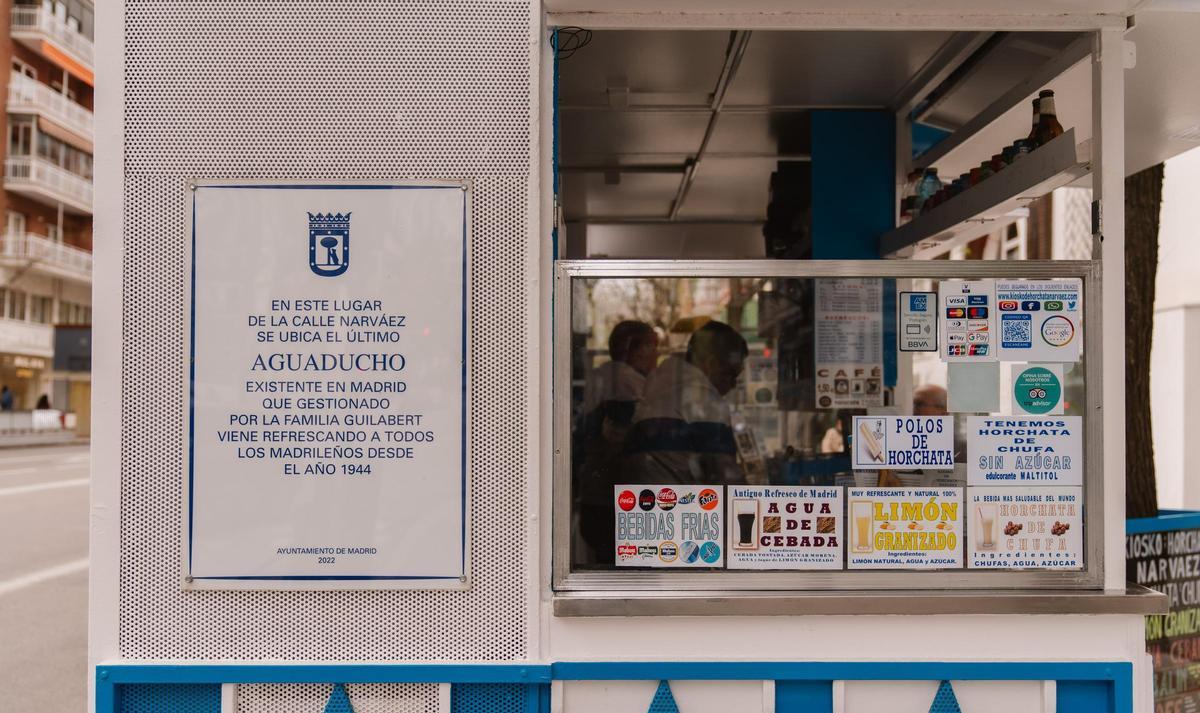
The Kioskos of the Guilabert family have gone through several locations, being Narváez street the last since 1944. / Alba Vigaray
At 58, José Manuel does not stop thinking about his retirement, since if he does not find in his family an heir to take his witness, the business will disappear. “If you are not someone from our family, it will not make sense and will lose its essence”he declares. His only daughter, who has 28 and works at a travel agency, would be the ideal candidate, but does not share her passion for the sale of these drinks. “Since I was little she has leated us in the kiosk to my brother and me, but it is not a thing that she likes exactly. Like tomorrow the thing is not going well and she has to take it because she has no choice,” he laments. His retirement is still far, but José Manuel is not willing to lose what has meant so much. The last Aguaducho of Madrid, surrounded by franchises and fast food, is more alive than ever.
Subscribe to continue reading
